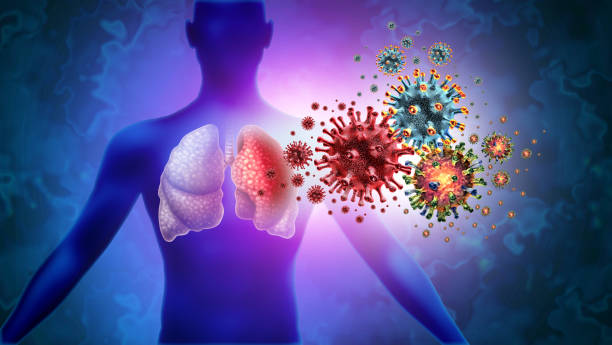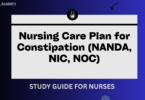Let’s talk about something pretty common but sometimes quite serious: community-acquired pneumonia (CAP). Now, don’t worry if you haven’t heard of it before; it’s basically a respiratory infection that likes to sneak up on folks who haven’t been hanging around hospitals lately.
It’s caused by all sorts of pesky germs like bacteria, viruses, and fungi, and it loves to set up camp in your lungs, causing a whole lot of inflammation in those precious air sacs.
Signs and Symptoms of CAP?
So, how do you know if you’ve got CAP? Well, it usually starts with some typical respiratory symptoms like coughing, chest pain, and feeling like you’re struggling to catch your breath.
You might also feel like you’ve been hit with a ton of bricks fever, chills, and just feeling downright exhausted. And if things get really bad, you might even find yourself feeling confused, turning a bit blue, or having trouble breathing altogether.
Diagnosis of CAP
Now, let’s talk about figuring out if it’s really CAP that’s causing all that trouble. Doctors usually have to play detective, using a mix of physical exams, checking your medical history, and running some tests.
They might order up chest X-rays, poke around with blood tests, collect some sputum samples, and even clip a little device on your finger to check your oxygen levels.
Treatment Options for CAP
Alright, let’s get down to business: how do we kick CAP to the curb? Well, the main weapon in our arsenal is antibiotics, targeted at whatever bug is causing the mischief in your lungs. But hey, we can’t forget about giving you some TLC too.
Staying hydrated, getting some extra oxygen if you need it, and managing that fever are all key players in helping you feel better. And if things get really serious, you might need to cozy up in the hospital for a bit so the doctors can keep a close eye on you and pump those antibiotics straight into your veins.
Prevention of CAP
Now, wouldn’t it be nice if we could just avoid CAP altogether? Well, we can give it our best shot by getting vaccinated against some of the common culprits, like Streptococcus pneumoniae and the flu virus. And let’s not forget the basics: wash those hands regularly and try to steer clear of anyone who’s feeling under the weather.
Complications Associated with CAP
Sometimes CAP can throw us a curveball and lead to some pretty serious complications like breathing trouble, widespread infection, or even abscesses in the lungs. Folks who are older or already dealing with health issues are especially at risk for these complications.
Prognosis and Recovery
But hey, it’s not all doom and gloom – most folks bounce back from CAP with the right treatment and a bit of time. Your chances of getting back to your old self depend on lots of things, like how healthy you are to start with, how bad the infection is, and how quickly you get the help you need.
Impact of CAP on Public Health
CAP might seem like just another bug going around, but it can actually be a pretty big deal for public health systems worldwide. It racks up healthcare costs and keeps folks out of commission longer than we’d like. That’s why it’s super important to be on top of prevention and treatment.
Challenges in Managing CAP
But you know what? Dealing with CAP isn’t always a walk in the park. Sometimes those pesky germs don’t play nice with antibiotics, making treatment a real challenge.
And let’s not forget that not everyone has equal access to healthcare, which can make it tough for some folks to get the help they need when they need it.
Future Perspectives in CAP Management
Luckily, there’s hope on the horizon. Scientists are cooking up all sorts of cool new ways to diagnose and treat CAP, from fancy tests to new vaccines. And if we all work together to spread the word about prevention, we might just be able to give CAP the boot for good.
Conclusion
So, there you have it community-acquired pneumonia might be common, but it’s nothing to brush off lightly. With a bit of know-how and some TLC, we can tackle CAP head-on and keep ourselves and our communities healthy and happy.
Read more: Pneumonia
Read more: Causes of pneumonia







